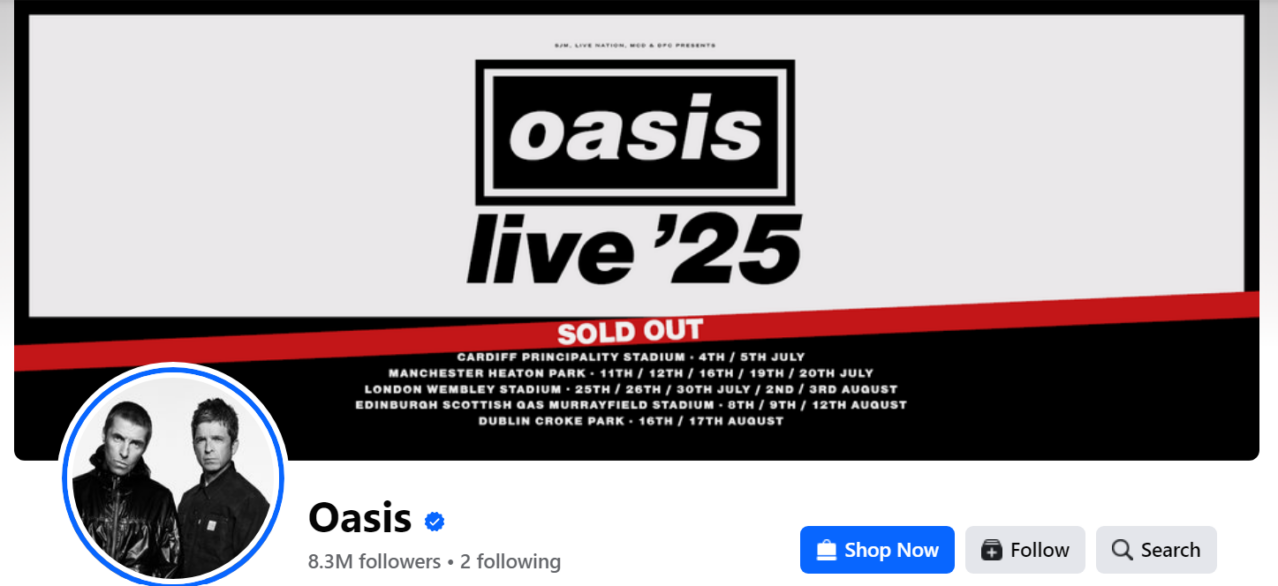Last weekend, an astonishing 14 million Oasis fans competed for just 1.4 million tickets for 17 shows scheduled for next year. Following the shock announcement of a reunion between the infamous Gallagher brothers, Oasis’ streams on Spotify surged by over 160%, and sales of their music skyrocketed—vinyl and CD sales at HMV increased by more than 500%.
The band took the decision to use dynamic pricing, which has led to an oasis-sized controversy this week. Fans were up in arms about inflated pricing after hours of waiting in a virtual queue and the Advertising Standards Authority (ASA) received a notable 450 complaints regarding Ticketmaster’s advertisements for the gigs, highlighting the ongoing concerns about transparency in ticket sales.
Lisa Nandy the culture Secretary, said she thought the inflated price of tickets was “incredibly depressing” and confirmed that ministers will examine surge ticket pricing in a review after the cost of tickets for Oasis’s concerts more than doubled while on sale.
We think this is particularly interesting when viewed through the lens of the HEART by MTM growth framework—especially the brand experience drivers of ‘value for money’ and ‘acting with integrity’. As a reminder, our multifaceted HEART framework leverages seven key experience drivers that help brands understand customers’ needs and motivations.
So what exactly happened?
Millions of fans, predominantly Millennials, eagerly set their alarms for 7:55 AM on Saturday morning, ready with their laptops, anxious for the moment tickets would go live for the first time in 15 years. (So far so good—from a HEART framework perspective, personalising relationships by surprising and delighting customers with the anticipation of a landmark reunion gig is a great start.) For the fans, it felt like Christmas had come early. Some fortunate fans managed to secure tickets, while many others endured hours of frustration and disappointment as the tickets sold out within hours. While this is typical for popular gigs, something was different with this one…
Initially, the tickets were priced at £150, and fans waited tirelessly in a digital queue for the chance to purchase the cheapest standing tickets. They faced the repeated message, “You’re in a Queue,” for hours, but then, upon reaching the front of the queue, they discovered that ticket prices had ‘surged’ with prices jumping from £150 to £350! Many fans, unable to afford the steep increase, felt compelled to buy tickets after investing so much time waiting, leading them to incur debt and anxiety.
Why would customers do this? This behaviour can be explained by the sunk cost fallacy, a theory that we talk about in our HEART growth framework, which is also a cornerstone of behavioural science thinking: When individuals invest substantial time, money, or effort into something, they tend to assign it greater value and are less likely to walk away. The sunk cost fallacy, in this context, becomes a form of manipulation. Needless to say, this isn’t great for building brand trust. And value for money (which they thought they were getting at the £150 ticket price), went out the window.
Both Ed Sheeran and Taylor Swift made a conscious decision to opt against dynamic pricing for their recent UK tours, aiming to make concert tickets more accessible to their fans. Sheeran has been particularly vocal in his opposition to ticket touting, emphasising the importance of fair pricing and the detrimental impact of resellers on genuine fans. Through the lens of HEART, this is a smart approach that reinforces the integrity and values that help make both Sheeran and Swift megastar brands.
The use of dynamic pricing in this specific case, raises significant questions about fan manipulation and the ethical implications of such practices. By implementing dynamic pricing, some fans might have felt backed into a corner to pay inflated prices or risk missing out on the experience altogether. This can not only create distrust among the fanbase but also tarnish the perception of a brand’s integrity and commitment to its audience. As artists like Sheeran and Swift take a stand against these practices, it calls into question the future of ticket sales and the need for a more equitable system that prioritises fans over profits. Don’t loyal fans deserve better?
For a closer look at the HEART framework and what digital and subscription services brands can do to drive healthy acquisition and retention, download our eguide.
